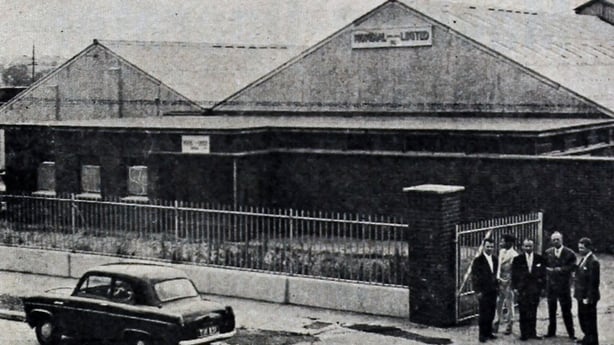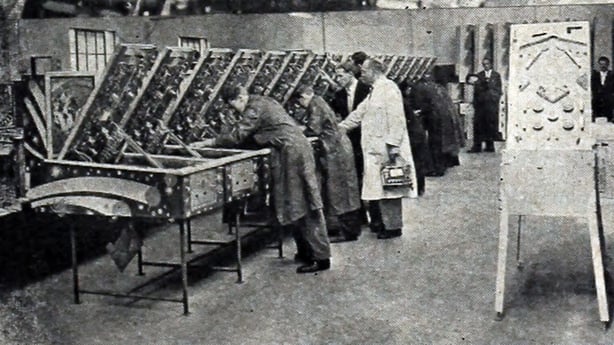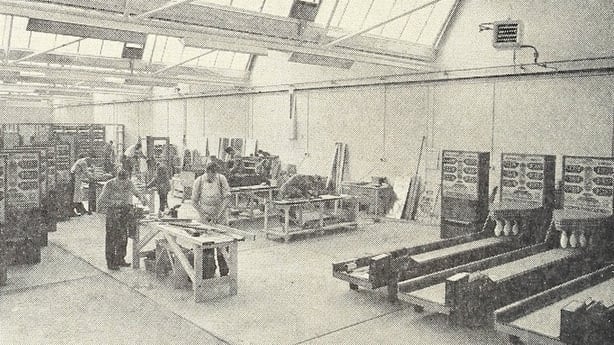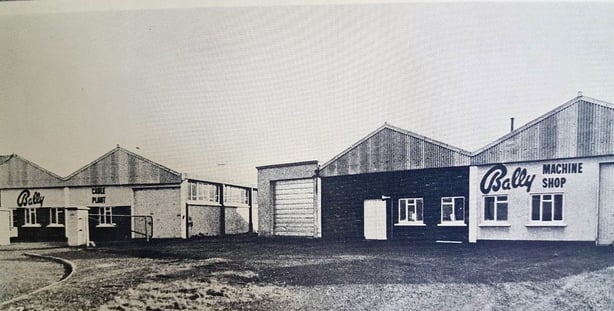Analysis: Irish factories began producing coin-operated games for international export in the late 1950s and early 1960s
By Kieran Nolan, Dundalk Institute of Technology
Ireland has a largely hidden history of electromechanical coin-operated game manufacturing and distribution. Electromechanical amusements are built from electrical and mechanical components, without any digital computer circuitry. They are the analog forerunner to arcade video games based on digital technologies such as Space Invaders that emerged from the 1970s onwards.
Three Chicago gaming companies set up bases in Ireland between 1959 and 1965. August 1958 saw the opening of Mondial's Dublin pinball machine factory at 76 Bannow Road, Cabra.This followed a meeting two years previously between Dublin's Lord Mayor and former Fianna Fail TD Robert Briscoe and Mondial's owner Suren D. Fesjian in New York, highlighting Ireland's potential as a centre for international business investment.

Mondial distributed for pinball industry heavyweights Gottlieb and Williams. Rather than import entire machines from the United States, Mondial instead imported the flipper mechanisms from America with financial support from the Irish government. They then manufactured and built the remaining 75% of the machines at their Dublin factory. Mondial Dublin had an R&D section that analysed pinball table prototypes sent over from the US by both companies and developed final designs for mass scale production in Dublin.
The factory employed 50 workers when it opened, and its output was split half and half between Gottlieb and Williams products, with an initial run of 50 units per week. This was estimated to triple over the first year of the factory’s life, and it was intended that the workforce would increase by this amount also. An image of the factory’s quality testing line from the factory opening shows a row of newly built Williams Satellite pinball games undergoing a final test before shipping.
The Irish-made pinball tables closely matched the design of the US originals, but carried labels noting their Dublin origins. Mondial Dublin’s business outlook was promoted positively in the industry press, with an article from Cash Box magazine July 1959 reporting on a completed expansion at the Dublin factory. However, reports on Mondial's operations in Dublin disappeared completely from trade periodicals after 1959, with no mention of the Cabra plant or the circumstances surrounding its cessation of business.

January 1959 saw the establishment of Co-Am-Co, a subsidiary of Chicago Dynamic Industries at the pioneering Shannon Free Zone duty-free and tax-free industrial area in Co Clare. The company and Chinchilla (Shannon) Ltd, who bred chinchillas for the fur industry, were the first two companies at the Free Zone.
Both were very different types of businesses, but shared an important milestone in Shannon’s development as a hub for international investment and exporting. An Irish Press article from March 1959 projected that both companies between them would use £40,000 worth of air freight in and out of Shannon in the following 12 months. Business attracts business and Sony Japan established their transistor radio factory in Shannon in December of that year. The company wasn't as well known back then, and some local news reports erroneously spelt the company's name as Soni or Sunny.
Co-Am-Co manufactured the Player's Choice Bowler, an all-in-one coin-operated bowling alley. The electronics for the games were imported from the US, while woodworking and other fabrication took place on-site using locally sourced materials. The Free Zone’s location at Shannon Airport perfectly suited the logistical demands of exporting to Europe, the Middle East and Asia.

But eight months after opening in Shannon, a dispute between the company’s directors and distributors led to Co-Am-Co moving to Glasgow in August 1959 to become Co-Am-Co Britain. Its place at Shannon was swiftly filled by International Dynamic Industries, who continued to produce bowling machines at their 20,000 square foot facility while expanding their remit to coin-counters, wiring harnesses, and relays. IDI operated until July 1960, when the liberalisation of exports from the US direct to the UK market led to its abrupt closure.
The third American company to set up in Ireland were the Bally Manufacturing Company who opened a factory at Ballymount Road, Walkinstown, Dublin in 1965. The name 'Bally' may suggest a connection to Ireland, but derives from the word 'ballyhoo', meaning an exaltation of delight. Bally's Walkinstown factory specialised in one-armed bandit slot machines and focused primarily on exports to the UK and Australia. Bill O’Donnell, the president of Bally Manufacturing told Time magazine in 1977 that "we couldn’t do business in Australia without that Dublin plant, because Ireland qualifies for special treatment on tariffs there".

The company had several site expansions through the 1960s and 1970s. Local newspaper reports from Bally’s time in Dublin detail numerous strikes, threatened closures and a 1967 Labour Court case regarding the wages and conditions of machine shop workers. Despite these issues, the company played a significant role in the local economy, employing over 270 workers at capacity and remaining active until 1981.
Each of these American companies were attracted to Ireland by low manufacturing costs, tax breaks, and Ireland's ideal location as a European distribution hub. The factories also helped meet an international market demand for coin-operated amusements previously filled by bootleggers. Co-Am-Co/IDI, Mondial and Bally represent a small but meaningful sampling of pre-Celtic Tiger Ireland’s reliance on manufacturing jobs, an electromechanical precursor to Atari and Exidy’s arcade video game amusement factories in Ardfinnan and Nenagh respectively and an important legacy as part of the story and evolution of Ireland’s gaming technologies industry.
Follow RTÉ Brainstorm on WhatsApp and Instagram for more stories and updates
Dr Kieran Nolan is a lecturer in Creative Media at Dundalk Institute of Technology, and Co-Director of DkIT's Creative Arts Research Centre.
Disclaimer: The copyright of this article belongs to the original author. Reposting this article is solely for the purpose of information dissemination and does not constitute any investment advice. If there is any infringement, please contact us immediately. We will make corrections or deletions as necessary. Thank you.






